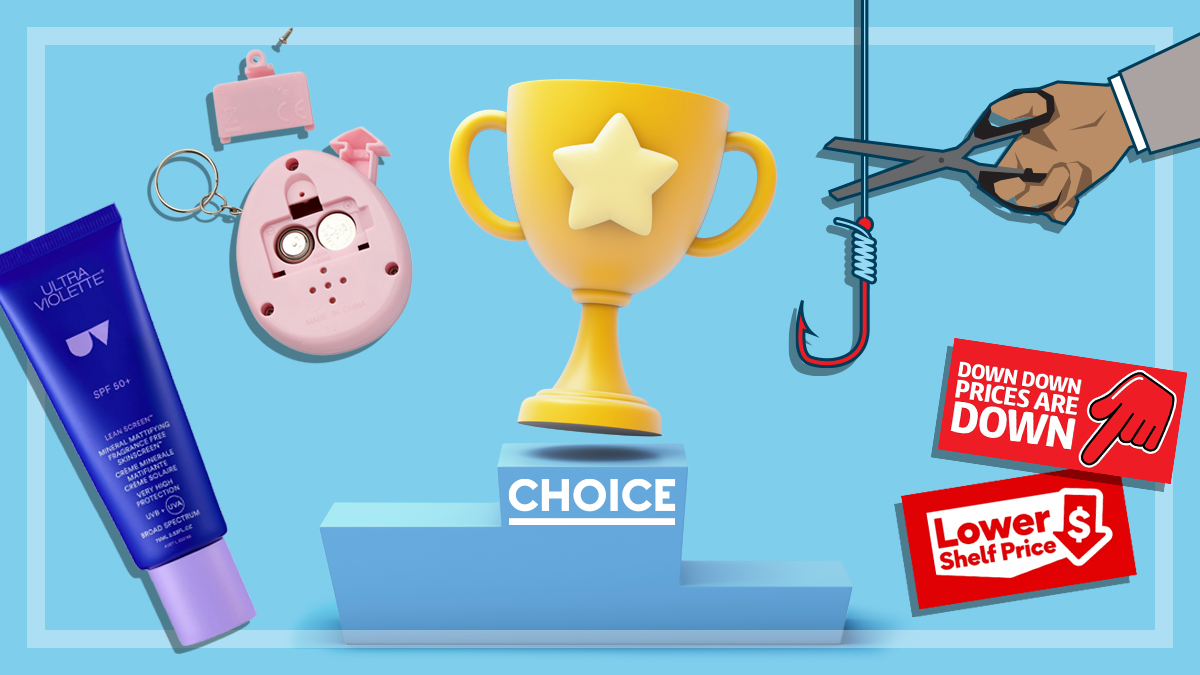Get our independent lab tests, expert reviews and honest advice.
Problems with a service: what you can do

When you pay for a service, you expect to get what you paid for. So what are your rights when something goes wrong?
On this page:
- How Australian Consumer Law covers services
- What to do if you have problems with a service
- Phone and email templates to help you
- When you can't resolve the issue yourself
This guide explains the legal guarantees you have as a consumer, and how you can take action to resolve an issue.
How Australian Consumer Law covers services
The Australian Consumer Law (ACL) creates consumer guarantees that automatically protect you and your rights when you pay for a service. Businesses must provide these guarantees, even if they also give or sell you other warranties.
According to the ACL, services must:
- Be performed with proper care and skill
- Be fit for a particular purpose or achieve the result you expected
- Be delivered within a reasonable time, or by the end date in a contract.
If you’re experiencing problems with one of the service types covered by the ACL, the steps below can help you resolve the issue. Our guide covers services for personal or household use only.
Service types covered by the ACL
Consumer guarantees cover services supplied by people and companies. Service types covered include:
- Household trades work
- Legal advice
- Entertainment
- Recreation
- Educational services.
The ACL also covers ongoing services, like:
- Pay TV
- Bundled home internet and landline services.
Services not covered
The ACL doesn’t cover complaints about:
- Insurance
- Utilities
- Telecommunications
- Financial services.
If you’re having problems with one of these services, you’ll need to contact the relevant industry or government agency.
What to do if you have problems with a service
1. Contact the service provider
Before you take action, first contact the service provider and talk to them about your issue.
Sometimes a phone call is all that’s needed to fix the problem.
When you call the provider, take notes on who you spoke to, what you discussed and the relevant dates. That means the conversation is recorded in case you need to refer to it later.
When you contact the supplier, you should use key phrases to get your point across. Our email and phone templates can help you with advice on what to say.
To find out if your specific service problem is covered by consumer guarantees, follow the next steps in this guide.
2. Work out what kind of problem you have
The ACL sets out consumer guarantees which can help you address problems with a service. You can refer to these guarantees when you contact the service provider about your issue.
The supplier didn’t use an acceptable level of skill and care
Meaning: As well as using the level of skill or technical knowledge required to achieve the result you expect, suppliers must also take all necessary care to avoid loss or damage when providing the service.
Example: You request the services of a contractor to fix your cracked fishpond. The supplier has fixed the cracks and repainted the pond. Unfortunately, they’ve also used a toxic paint that is deadly to your fish. The contractor has not used due care and skill to avoid loss.
The service isn’t fit for purpose or doesn’t do what you expect
Meaning: Suppliers guarantee that the service provided will meet the expected standard, and achieve the result you want. In order for the supplier to reach the right result, you’ll need to tell them at the start of the job what you want.
Example: A contractor installs a pool fence that isn’t childproof. The pool fence isn’t fit for purpose because it doesn’t meet the Australian standard requiring all pool fences to be child safe.
The service took too long to complete
Meaning: The service wasn’t provided within a reasonable period, or by the completion date as specified in the contract.
What’s reasonable depends on the type of service and its complexity. A complete renovation of a kitchen will take longer than cleaning a pool.
3. Work out if the problem is minor or major
The remedy you can ask for depends on how serious the issue is. First you’ll need to determine if your problem is minor or major.
A service has a major issue if at least one of these applies:
- It has problems you were unaware of before buying it
- It doesn’t do what it should, and the issue can’t be fixed easily or quickly
- It’s not what you asked for, and the issue can’t be fixed easily or quickly
- It’s unsafe
- It has two or more minor failures, and you would not have bought the service if you knew the nature and extent of these failures. (Note: These failures don’t need to relate to the same consumer guarantee.)
If it’s a major issue
To address this kind of problem you can:
- Get it fixed elsewhere and recover the costs from the original supplier
- Cancel the service contract
- Get a refund for any money already paid to the supplier
If it’s a minor issue
You can ask the provider to fix the problem within a reasonable period of time, or ask them to resupply the service with the issue fixed.
CHOICE tip: If the service has two or more minor failures, it can be considered a major failure.
4. Scenarios where you can’t cancel a service
If you have a minor service problem, or it can be reasonably fixed, you can’t cancel the service. You need to have a major problem to cancel the service.
You also can’t cancel a service if:
- You’ve changed your mind
- Your problem is outside the supplier’s control
- You want the service provided in a way that goes against the supplier’s advice
- You didn’t clearly communicate what you wanted from the supplier
Phone and email templates to help you
If you’re contacting the business by phone or email, our scripts and email templates can help you get started. They’ll help you express your complaint easily and in a way the supplier will understand.
When you can’t resolve the issue yourself
If you can’t get a fix, what next? These industry and government agencies can help you take further steps to resolve your service issue.
State or territory consumer protection agencies
Your state or territory fair trading organisation can help you better understand your rights. They can also negotiate a resolution between you and the supplier if required.
Industry ombudsman
Industries such as airlines, banking and insurance, energy and water, telecommunications and postal services have ombudsmen, commissions or other bodies that can help. These organisations aim to resolve complaints impartially and informally.
Tribunals and small claims courts
If approaching any of the agencies does not fix the issue, you might need to take legal action. Go to our contacts page to find the right tribunal for your state or territory.





